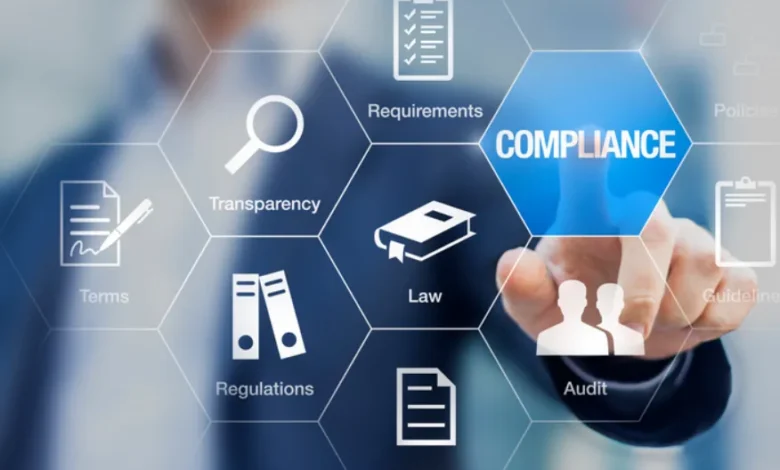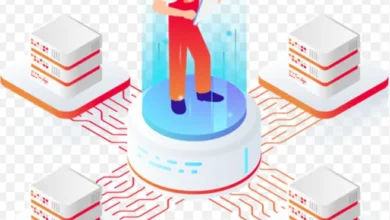The Role of Advanced Labeling Solutions in Streamlining Regulatory Compliance

Contents
- 1 Introduction
- 2 The Importance of Regulatory Labeling Compliance
- 3 The Role of ROBAR in Regulatory Compliance
- 4 Challenges in Labeling Compliance
- 5 Global Compliance Challenges
- 6 Technological Innovations in Labeling Software
- 7 Best Practices for Implementing Labeling Solutions
- 8 Success Stories of Compliance Labeling
- 9 The Future of Labeling
- 10 Conclusion
Introduction
Achieving regulatory compliance through advanced labeling solutions is essential for maintaining accuracy and minimizing risks in regulated industries. Solutions like ROBAR streamline responses to regulatory changes, helping businesses avoid non-compliance. Strategic implementation involves setting clear standards, training staff, and utilizing technology to ensure precise labeling practices. Success stories from various companies showcase how advanced labeling systems enhance efficiency and reduce risks. The future of labeling lies in scalable and adaptable software that meets global compliance requirements.
The Importance of Regulatory Labeling Compliance
Regulatory labeling compliance is crucial for product manufacturing and distribution. Navigating diverse regulatory requirements, which vary by industry, region, and product, is challenging. Non-compliance can lead to legal actions, recalls, or reputational damage. Innovative labeling solutions like ROBAR are designed to simplify complex processes and prevent these issues.
The Role of ROBAR in Regulatory Compliance
ROBAR integrates technology and regulatory expertise to create a comprehensive labeling ecosystem. It adapts to modern manufacturing needs, including regulatory changes, consumer demands, and supply chain modifications. Advanced labeling solutions ensure manufacturers and distributors maintain market integrity and meet legal expectations.
Challenges in Labeling Compliance
Labeling compliance involves intricate challenges requiring accuracy and adaptability. Organizations must stay updated with evolving regulations to avoid recalls, fines, or legal repercussions. Enterprise labeling solutions like ROBAR provide tools to manage these complexities efficiently.
ROBAR’s key feature is its ability to update label content promptly within the quality management system. This is crucial in industries like pharmaceuticals, where patient safety depends on accurate labeling. By enabling quick adaptation to regulatory changes, ROBAR helps organizations maintain high compliance standards.
Global Compliance Challenges
Global supply chains require products to meet multiple regulations across different regions. Advanced labeling solutions must understand diverse regulatory standards and be flexible enough to accommodate them. ROBAR equips companies to meet international labeling requirements, ensuring global compliance and consistency.
Technological Innovations in Labeling Software
Technological advancements have transformed labeling software, incorporating features like real-time database integration, automated regulatory updates, and extensive customization. These innovations reduce human error and ensure labels comply with the latest regulations.
Modern labeling solutions also integrate with enterprise resource planning (ERP) systems, enhancing traceability and reducing inefficiencies. This integration supports a more resilient supply chain.
Best Practices for Implementing Labeling Solutions
To maximize the benefits of advanced labeling solutions, companies should follow best practices during implementation. Establishing clear labeling standards aligned with corporate objectives and regulatory demands is essential. Enterprise-grade labeling solutions should encode these standards into their operations.
Training is crucial for successful implementation. Comprehensive and continuous training ensures personnel can operate labeling systems efficiently and stay updated with system enhancements. Emphasizing education and user-friendliness fosters a culture of compliance and accuracy.
Success Stories of Compliance Labeling
Organizations across various sectors have experienced significant benefits from advanced labeling solutions. Case studies from industries like pharmaceuticals and manufacturing highlight reduced labeling discrepancies, streamlined operations, and mitigated risks, resulting in fewer product recalls and compliance penalties.
One notable success story involves a global consumer products company that replaced its legacy labeling system with ROBAR. They reported substantial improvements in production throughput and a marked reduction in labeling errors, demonstrating the advantages of upgrading to an advanced labeling system.
The Future of Labeling
Global trade’s complexity will demand agile and foresightful labeling solutions. Technologies like blockchain and the Internet of Things (IoT) will enhance product tracking and traceability, preventing counterfeiting and mislabeling.
Adaptive software solutions will be critical in meeting future compliance requirements. This adaptability translates to more intelligent, proactive compliance management, where potential issues can be forecasted and averted through predictive analytics integrated into labeling software. Predictive analytics integrated into labeling software will help forecast and avert potential issues. By anticipating future demands, companies can remain compliant, efficient, and prepared for evolving global regulatory landscapes.
Conclusion
Maintaining strict regulatory compliance in product labeling is essential for modern industries. Implementing advanced labeling solutions like ROBAR is necessary for companies to stay competitive and compliant. These solutions ensure accurate information delivery, secure supply chain integrity, and uphold industry compliance standards globally.




